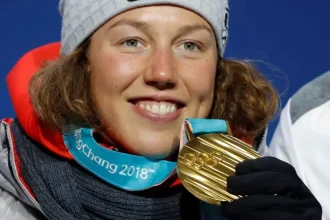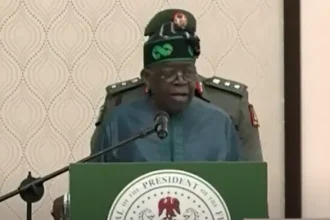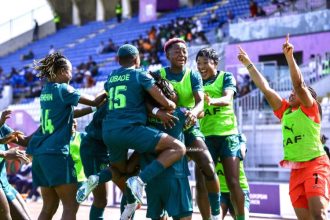A leaked medical report from the 2023 World Championships has revealed that Olympic boxing gold medallist Imane Khelif is biologically male, according to chromosome analysis.
The document, which surfaced just days after World Boxing ordered Khelif to undergo sex testing to determine her eligibility for future women’s competitions, indicates that she has an XY karyotype—characteristic of male biological sex.
The report has added fresh urgency to the ongoing global debate surrounding fairness and safety in women’s sports, with many critics calling for clearer rules on athlete eligibility. According to the findings published by 3 Wire Sports, Khelif’s chromosome analysis is “abnormal” and confirms a male karyotype.
The tests were conducted by Dr Lal PathLabs in New Delhi, an internationally recognised laboratory accredited by the American College of Pathologists and certified by the International Organisation for Standardisation.
This development directly contradicts earlier statements made by the International Olympic Committee. During a press conference at the Paris Olympics, IOC spokesperson Mark Adams described such test results as “ad hoc” and “not legitimate.”
Controversy has followed Khelif since the start of her Olympic campaign in Paris. Her first bout, against Italy’s Angela Carini, sparked concerns among observers and fellow athletes. Carini, a seasoned and respected boxer, appeared visibly distressed during the match. Overwhelmed by Khelif’s strength and intensity, she left the ring in tears and later told the media that she had feared for her safety.
The concerns only deepened during the final bout, where Khelif dominated Taiwan’s Lin Yu-ting in a one-sided match that many described as physically disproportionate.
Commentators and athletes criticised the apparent mismatch, with some calling the bout “uncomfortable to watch” and comparing it to watching a man overpower a woman in the ring.
The moment quickly became one of the most controversial episodes of the Paris Games, igniting worldwide discussions about the balance between inclusion and fairness in sport.
Despite the revelations in the leaked report, IOC President Thomas Bach has dismissed the findings, labelling them a product of a Russian-led misinformation campaign. He also cited ethical and financial issues within the International Boxing Association, the body responsible for conducting the tests.
However, the legitimacy and international accreditation of the Indian laboratory have placed mounting pressure on the IOC to address the growing concerns and clarify its position on Khelif’s eligibility.
In the wake of the leak, World Boxing has mandated that Khelif must undergo and pass chromosome testing before being allowed to participate in future women’s competitions. The 26-year-old champion was cleared to compete in the Paris Olympics based on her female passport designation, but she has yet to provide evidence confirming the presence of female chromosomes.
World Boxing has since introduced new eligibility protocols, requiring all athletes over the age of 18 to undergo PCR genetic testing as part of their sex verification process. This policy was implemented directly in response to the controversy surrounding Khelif’s participation.
The case has sparked deep concern within the boxing community, particularly over athlete safety and competitive integrity. Italian boxer Angela Carini and Mexico’s Brianda Tamara have publicly voiced the physical challenges they encountered while facing Khelif. Latin American boxing federations have also been vocal, calling for women’s competitions to be restricted to athletes assigned female at birth to ensure fairness and safety.
The controversy surrounding Khelif underscores the difficult and emotionally charged challenges sport faces in managing the participation of transgender and intersex athletes. While inclusivity remains an important value, many argue that it must be carefully balanced with the rights of female athletes to compete in safe and equitable environments.
The Khelif case has become emblematic of a broader reckoning within international sport, as governing bodies revisit their policies amid rising scrutiny. It brings into sharp focus the lived experiences of female athletes—many of whom have spent years preparing to compete under the assumption of a level playing field.
This is not, as some have framed it, about exclusion. Rather, it is about preserving hard-won opportunities for women in sport.







